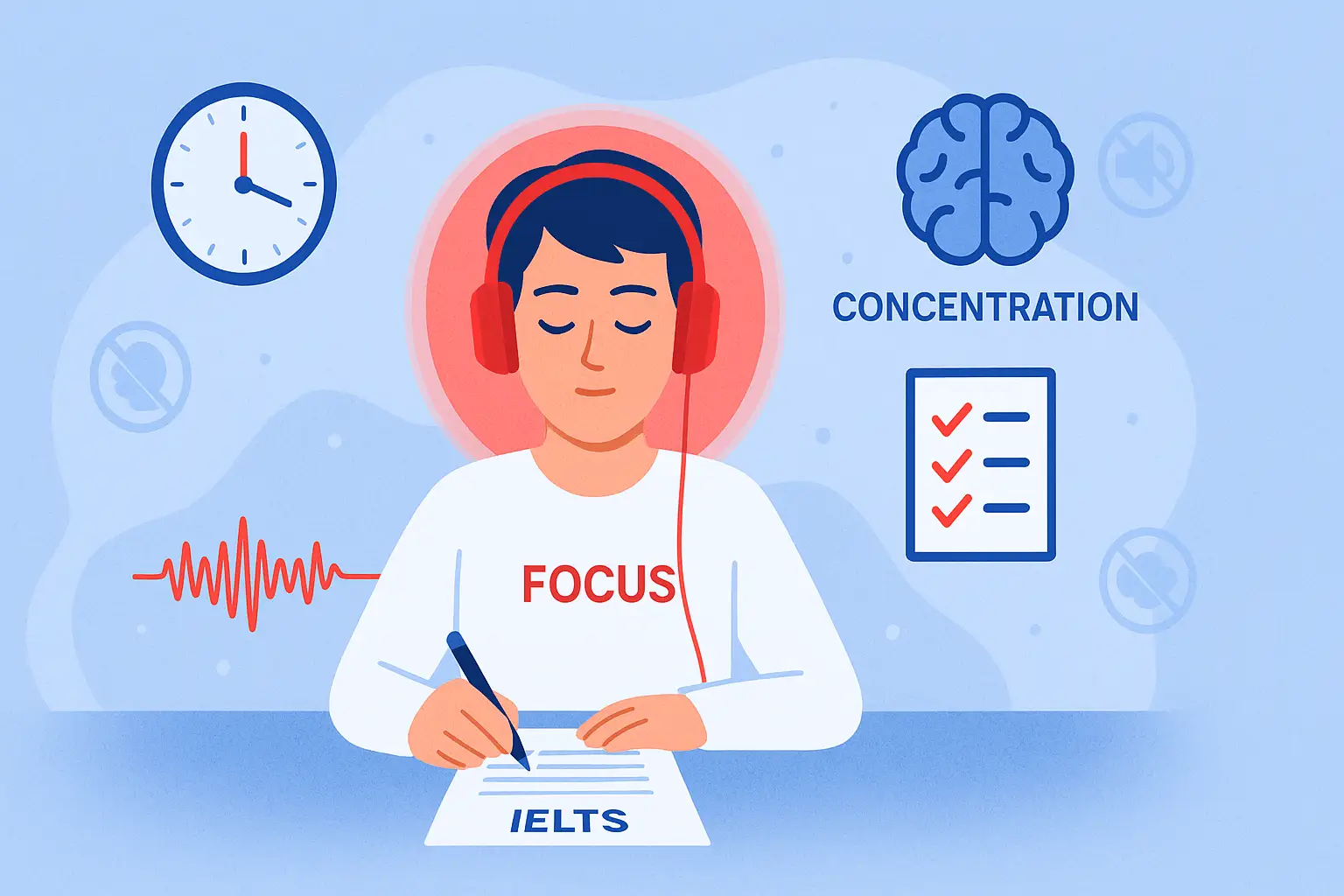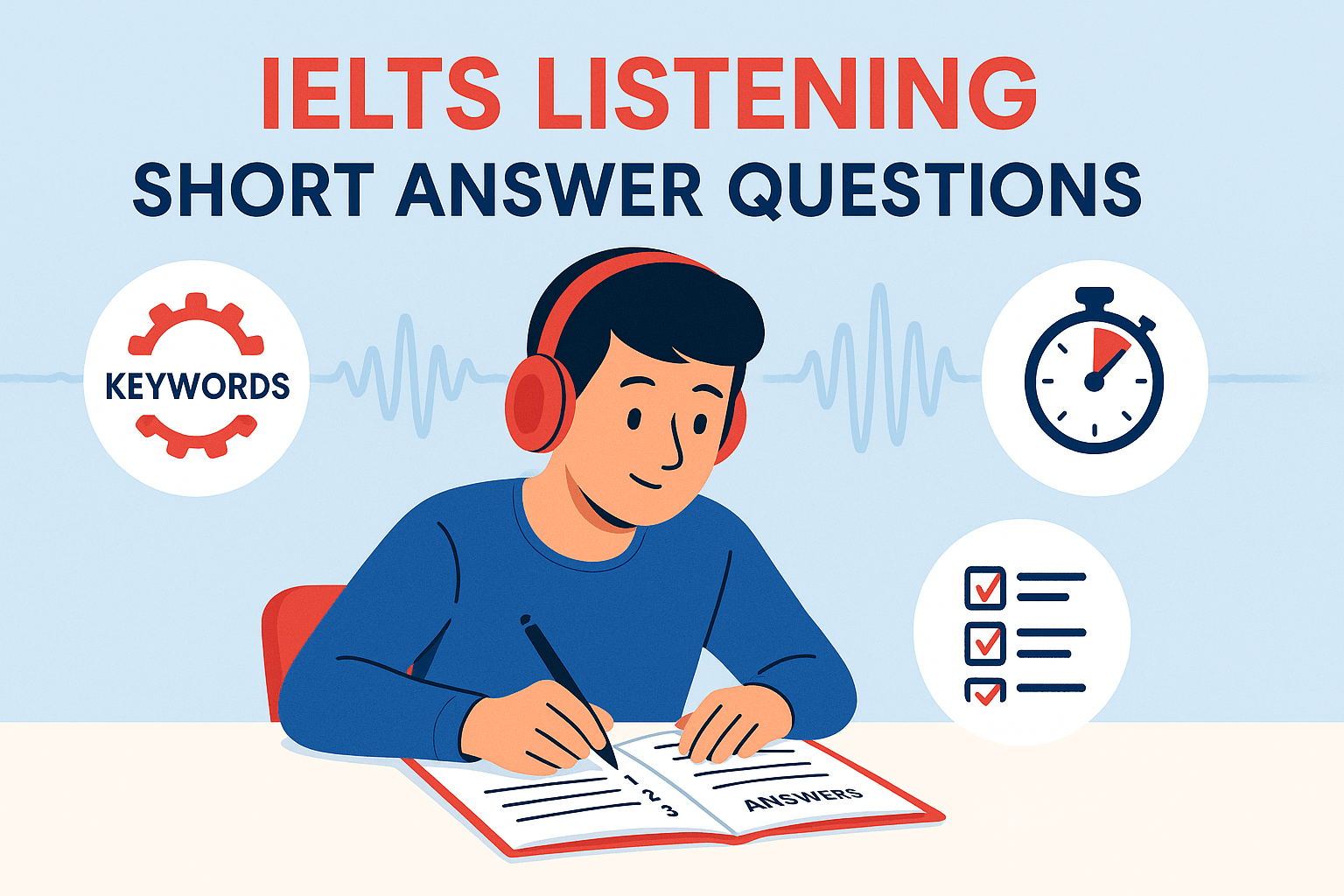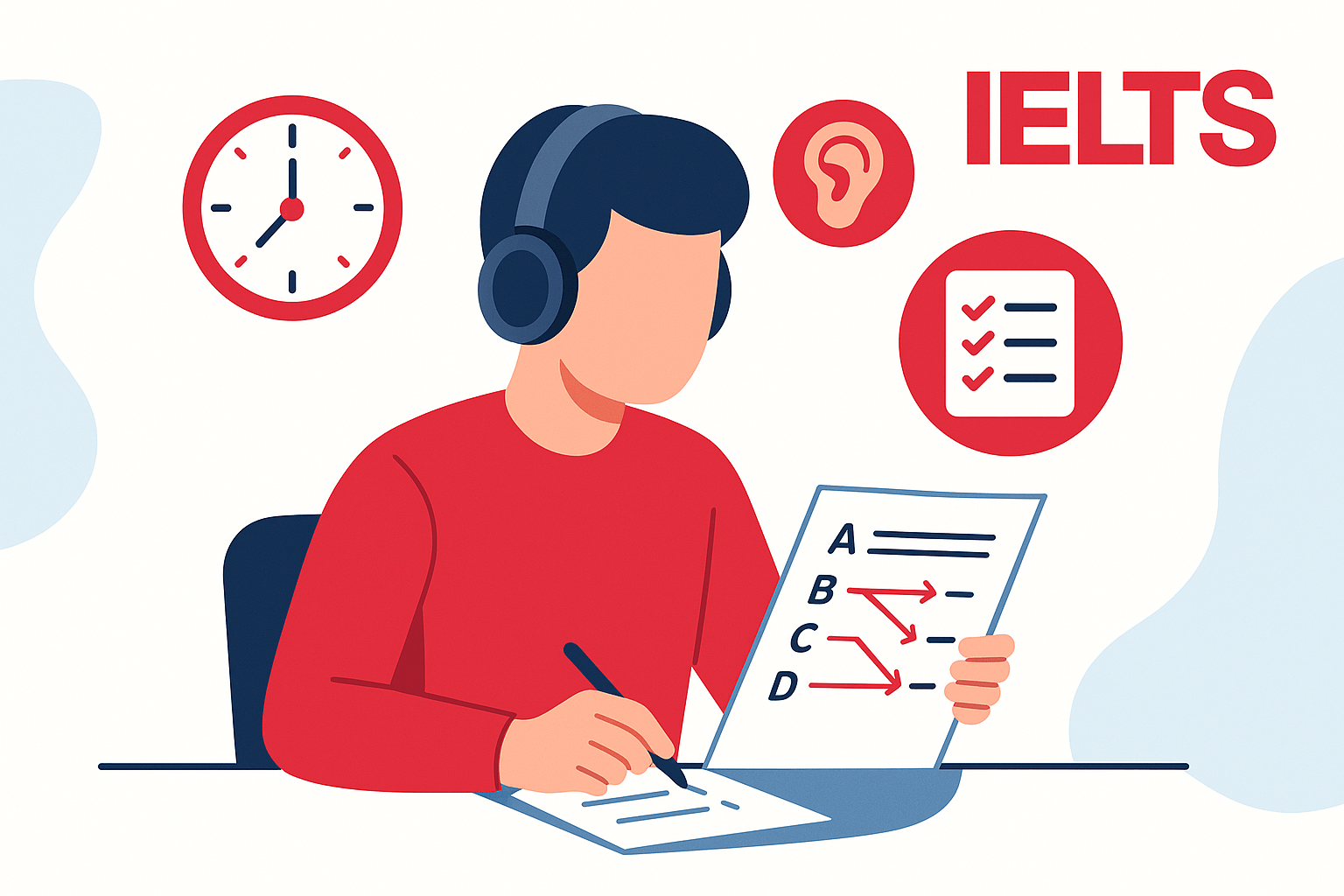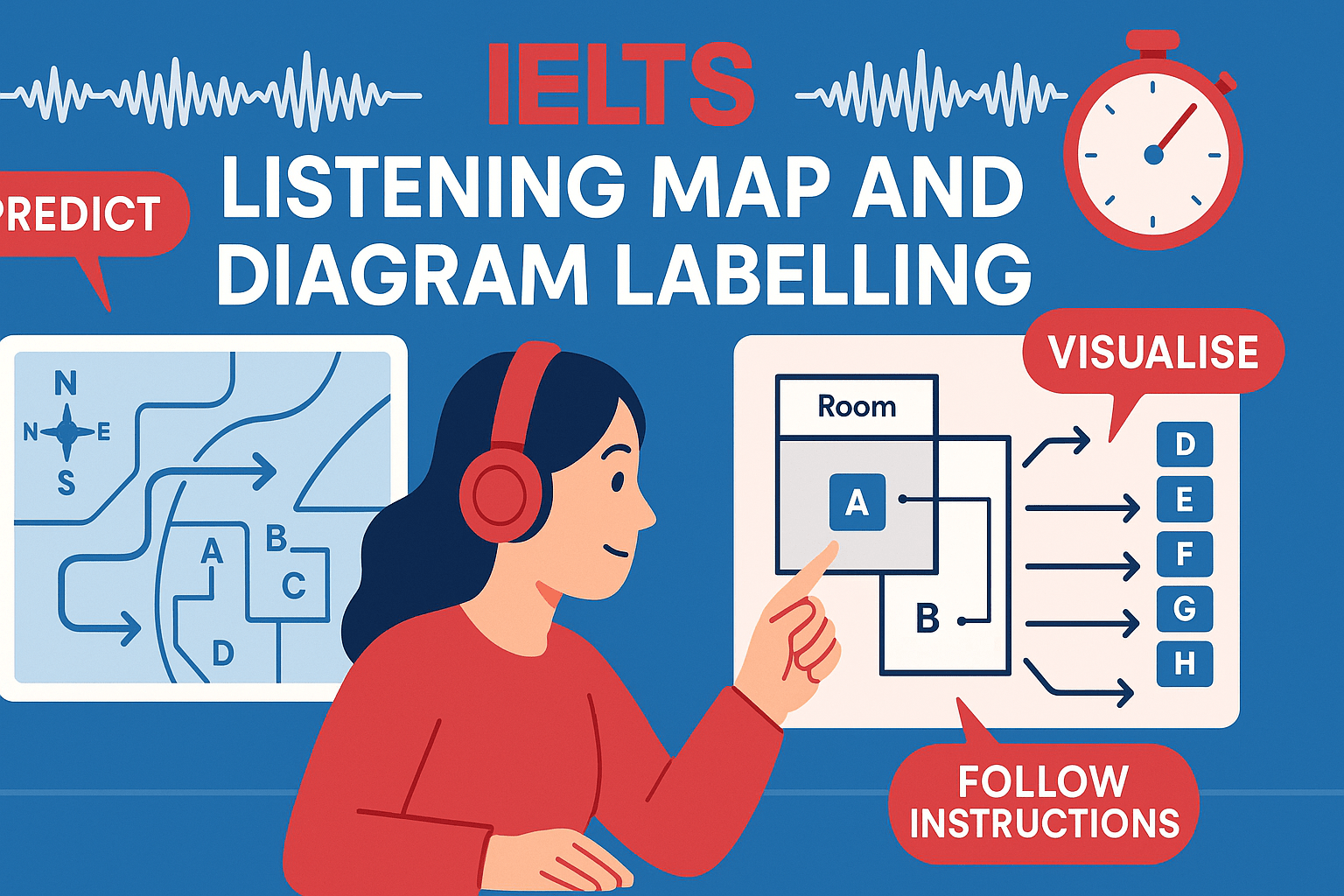- Why Students Struggle to Stay Focused
- The Real Test: Listening Under Pressure
- What Affects Your Concentration During IELTS Listening?
- Train Your Brain to Focus Like a Laser
- Bonus: How I Helped a Student Go from Band 6 to 8 in Listening
- Don’t Let Distraction Cost You Marks
- FAQ: Improving Focus in IELTS Listening
As an international IELTS teacher working with students from over 30 countries, one of the most common struggles I see is the inability to improve focus and concentration in IELTS Listening. Many of my students are fluent in English, yet they lose marks simply because their mind wanders or they miss key details in the audio. The good news? You can absolutely train your brain to stay present and attentive throughout the Listening test — and I’ll show you how.
Why Students Struggle to Stay Focused
Let me start with a story.
A few weeks ago, one of my students from India, Raj, told me, “I understand everything when I replay the recording, but during the real test, my mind goes blank.” He’s not alone. Whether it’s anxiety, overthinking, or background distractions, many students report that their concentration dips after the first section.
In fact, by Section 3 — when the test gets more challenging — it’s common to see even strong candidates lose their grip. That’s not a listening problem; that’s a focus problem.
The Real Test: Listening Under Pressure
The IELTS Listening test isn’t just about hearing — it’s about processing, predicting, and staying mentally present. You’re only allowed to hear the recording once. No second chances. So if you’re not fully focused, those answers are gone forever.
On platforms like IELTS.org or IELTS IDP, you’ll find plenty of tips about test format — but very few tell you how to build your focus stamina. That’s where this guide comes in.
What Affects Your Concentration During IELTS Listening?
- External distractions (noisy environment, test center conditions)
- Internal noise (worrying about past or upcoming questions)
- Lack of practice under real-time conditions
- Fatigue from back-to-back sections
- Multitasking without a clear system
Recognizing these triggers is the first step toward eliminating them.
Train Your Brain to Focus Like a Laser
(Yes, You Can Improve Focus and Concentration in IELTS Listening)
Here’s how I’ve helped my students go from distracted to laser-focused:
Practice Active Listening Daily
I always recommend 15–20 minutes of active listening practice with English podcasts, TED Talks, or news clips. But here’s the catch — don’t just listen passively. Write down key ideas, names, numbers, or paraphrased summaries as you go. This simulates real IELTS conditions.
You can find targeted practice materials at IELTS Listening Practice Tests, where the audio is designed to mirror the exact pace and accent variety of the real test.
Follow a Proven Strategy for Each Section
One of my students in Vietnam, Linh, used to score 6.5 repeatedly — until she learned how to predict answer types before the audio started. Now she’s scoring 8.0 consistently.
I teach my learners a pre-audio checklist:
- What is the topic?
- What type of information is missing (a number, name, place)?
- Can you anticipate the speaker’s next point?
This method is detailed in our Listening Strategies Guide — I strongly recommend reading it before your next practice session.
Train in Real Test Conditions
Never pause the recording. Don’t look at transcripts. Simulate the full 30-minute test without interruptions — just like the real exam.
You can get official test samples from takeielts.britishcouncil.org or explore structured preparation at Courseline IELTS Premium.
Use Visual Focus Anchors
Before the audio begins, circle or underline keywords in the questions. This keeps your eyes fixed on the right part of the page while your ears do the work. I also encourage using tick marks to track completed questions — this prevents losing your place.
Strengthen Your Mental Endurance
Focus is like a muscle — the more you train, the longer it lasts. If you lose attention after 10 minutes, set a timer and gradually increase your concentration span by 5-minute intervals daily.
Bonus: How I Helped a Student Go from Band 6 to 8 in Listening
Nadia, a Bangladeshi nurse preparing for the UK registration process, came to me frustrated after scoring 6.0 three times in a row. Her English was excellent, but she kept zoning out halfway through the test.
We didn’t focus on language. Instead, we focused on mindfulness during listening:
- Deep breaths before the audio
- One-point focus (only tracking the current question)
- Ignoring previous missed answers
She messaged me last month: “I finally got Band 8.0!”
Don’t Let Distraction Cost You Marks
Your IELTS score isn’t just a reflection of your English level — it’s a reflection of your mental control during the test. With the right methods, you can absolutely improve focus and concentration in IELTS Listening, just like hundreds of my students have.
If you’re serious about hitting Band 7, 8, or 9, start by mastering the core format with this complete Listening Band 7–9 guide. Combine it with smart strategies and focused practice, and you’ll be well on your way.
FAQ: Improving Focus in IELTS Listening
Q1: How can I stop overthinking previous questions I may have missed?
Focus only on the current question. If you missed an answer, let it go. Dwelling on it will make you miss more. Practice mindfulness techniques to build present-moment awareness.
Q2: Is it better to practice with or without transcripts?
Start without transcripts to build real-time focus. Later, review them only to analyse your mistakes — not while listening.
Q3: Can I improve focus in just a week?
You can definitely make progress in a week, especially by simulating full tests and using prediction strategies. But for long-term stamina, aim for at least 2–3 weeks of consistent training.
Q4: I get distracted by accents. What should I do?
Expose yourself to various English accents through IELTS.org practice samples and platforms like YouTube or BBC Learning English. Familiarity reduces distraction.
Q5: Are premium courses worth it?
If you’re stuck despite practice, a structured course like those at Courseline IELTS Premium offers targeted lessons, personalized feedback, and real test simulations — a smart investment.





